
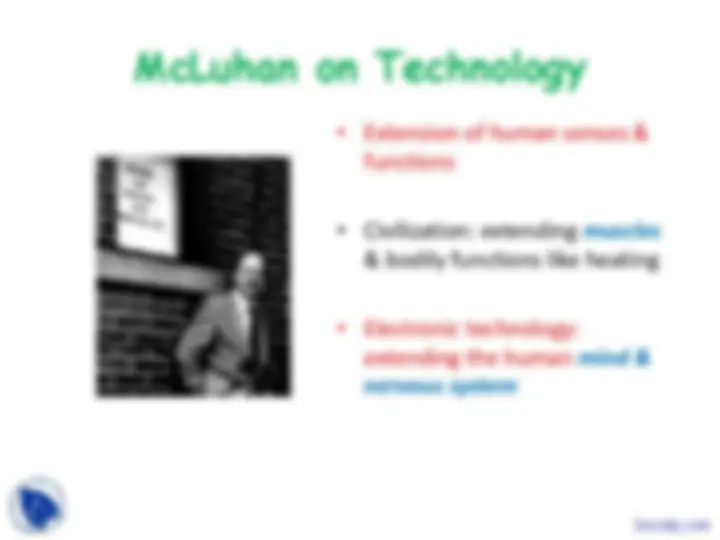
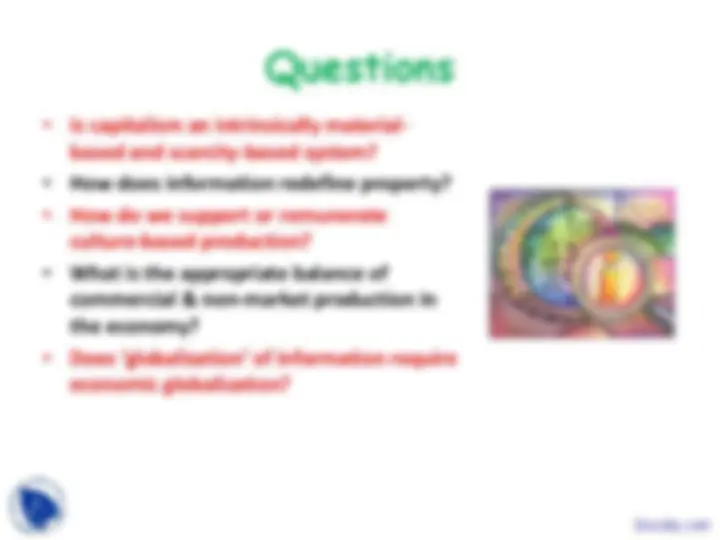
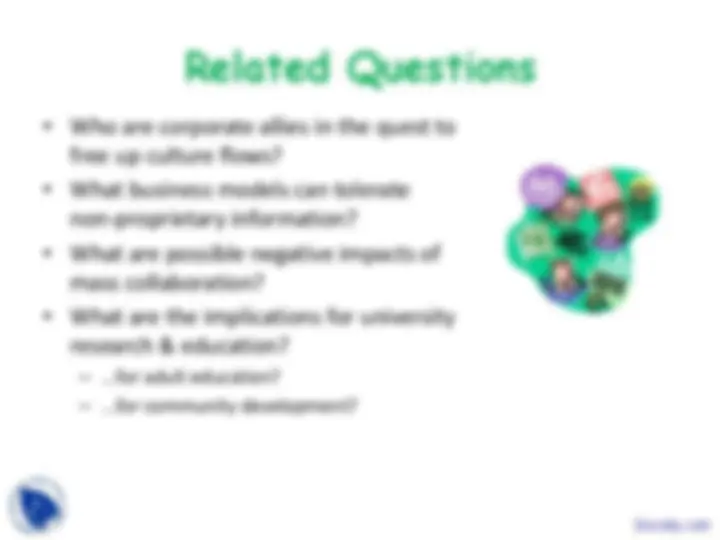
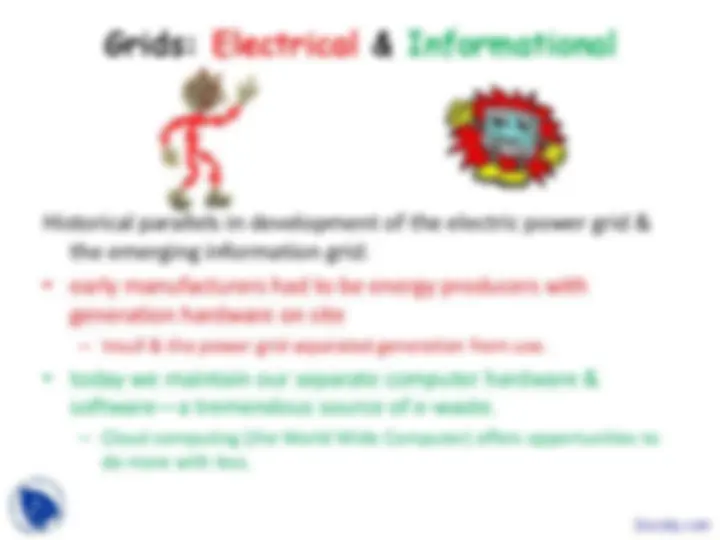
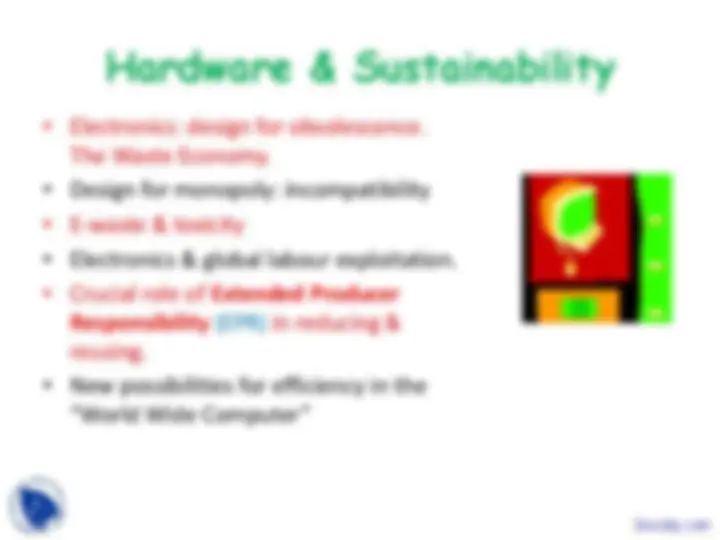
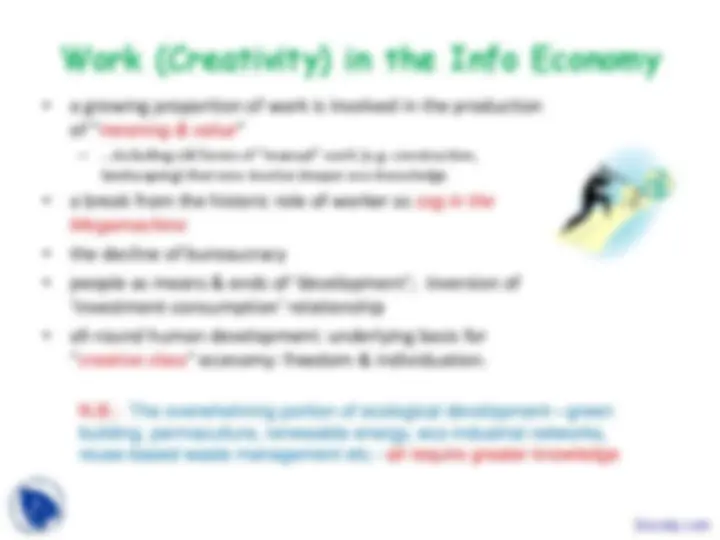
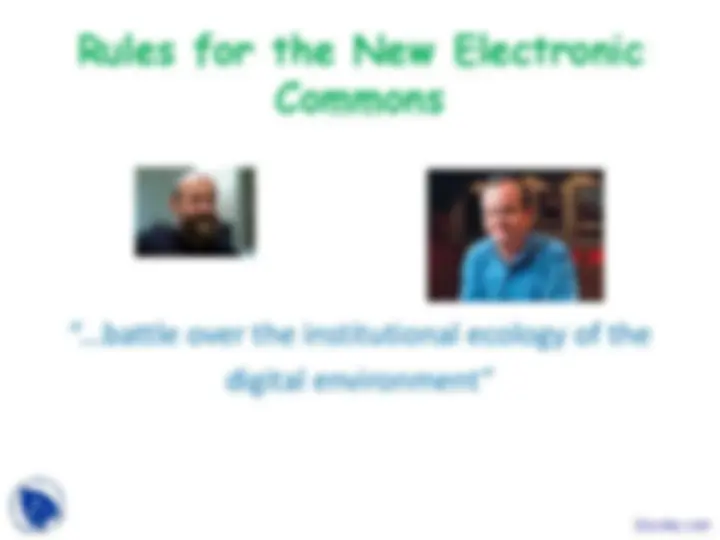
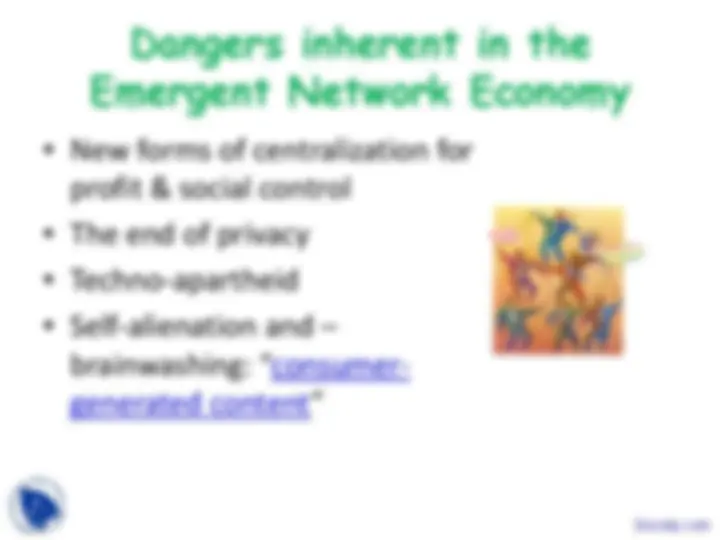


Study with the several resources on Docsity

Earn points by helping other students or get them with a premium plan


Prepare for your exams
Study with the several resources on Docsity

Earn points to download
Earn points by helping other students or get them with a premium plan
Community
Ask the community for help and clear up your study doubts
Discover the best universities in your country according to Docsity users
Free resources
Download our free guides on studying techniques, anxiety management strategies, and thesis advice from Docsity tutors
This lecture is from Environmental Economics. Key important points are: Network Economy, Culture in Economics, Property and Ownership, Creativity and Work, Commons and Ecology, Implications For Participation, Redefining Wealth, Money and Material, Mcluhan On Technology, Human Senses
Typology: Slides
1 / 14

This page cannot be seen from the preview
Don't miss anything!









Redefining Wealth
Quantitative:
Qualitative:
Questions
Related Questions
The Rise of Information
Grids: Electrical & Informational
Historical parallels in development of the electric power grid & the emerging information grid:
Work (Creativity) in the Info Economy
N.B.: The overwhelming portion of ecological development—green building, permaculture, renewable energy, eco-industrial networks, reuse-based waste management etc.--all require greater knowledge
Commons in the Info Economy
Brand: “Information wants to be free!” Daly: “Trade recipes, not cookies.”
Rules for the New Electronic
Commons
“...battle over the institutional ecology of the
digital environment”
Dangers inherent in the
Emergent Network Economy
profit & social control
brainwashing: “consumer- generated content”